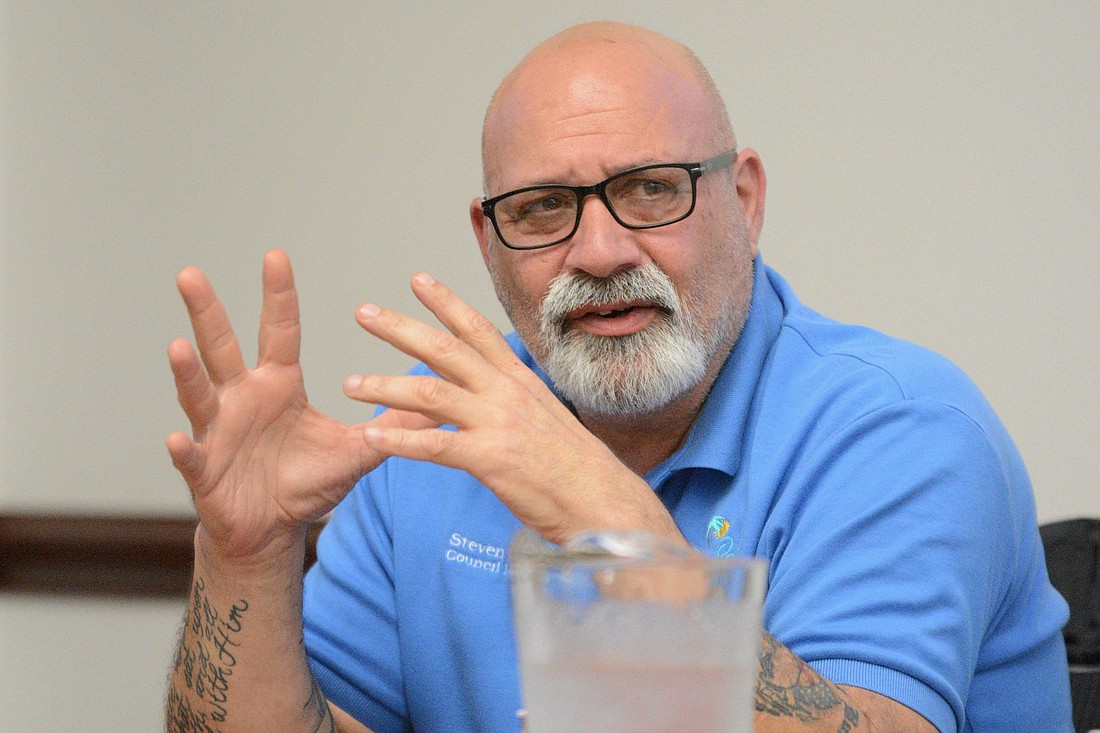- December 15, 2025

Palm Coast’s City Council wants the city to take action to reduce traffic issues on Florida Park Drive.
Councilwoman Heidi Shipley asked to discuss the issue during the council’s April 10 workshop. She had a proposal, which had first come up at a recent community meeting: adding stop signs on Florida Park Drive to push drivers to take other routes rather than using Florida Park Drive as a cut-through.
“When I was up in Massachusetts, we had a road that we did the same thing with; we’d cut down this road, and everyone used to cut down the road,” Shipley said. “And last time I was up there, it was stop signs put up. So, I made a conscious decision not to go down that road anymore, because I knew I had to stop at every stop sign. I think the same thing would work there.”
Shipley suggested that the city could start with two signs to see if they would reduce the traffic.
Councilman Steven Nobile liked the idea.
“That sounds like it would, it could, be a deterrent,” he said.
Mayor Milissa Holland said she thought adding stop signs would cause backups along the road and make it hard for residents to exit their driveways.
“Now, it flows,” she said. “Whether we like it or not, it’s a road that people utilize. I’ve utilized it since 1987. ... These residents are not going to be pleased waiting to get out of their driveways.”
Nobile said they’re waiting now — not because of backups, but because they have to wait for an opening in steadily moving traffic. And he didn’t think a stop sign would cause backups.
“What we’re doing is we lessen the traffic, so by lessening the traffic, I don’t see backups happening,” he said.
Councilman Nick Klufas said making traffic stop repeatedly would increase vehicle emissions on the road, since vehicles release more chemicals to start moving than to continue movement.
Councilman Bob Cuff agreed that emissions are a concern, and said that if the city adds stop signs, it should also monitor emissions levels.
But Nobile wanted to see something change.
“Over the last three years that I’ve been here, we’ve come up with more things than I can shake a stick at, and none of them get done,” he said. “And it appears that it doesn’t get done because we don’t want to do it, not because it can’t or it shouldn’t.”
He mentioned some of the ideas the council has talked about over the years, but not taken action on — road coatings that can reduce sound from passing cars, and shrubbery that can absorb emissions.
“The problems is, it’s never getting — nobody does it. We just sit here, we talk about it, and they’re good ideas. ... I just think if we did these few little things that won’t hinder the people who live there, will increase the beautification in the area and help them with the pollution and the noise. I just sit there and I shake my head and scratch my chin and wonder why, why don’t we help these people and do it?”
He said he recognized that there had also been bad ideas thrown around in the past, and he’d rejected those.
But, he said, “These items were passed up to administration and never came back with any options that said, ‘We can do this,’ or, ‘We can’t do this.’”
City Manger Jim Landon said that the city can’t just add stop signs at will.
“Stop signs actually by law, you have to do a warrant study to install them. There’s actually technical requirements by law as to where they can go,” he said. “If they’re not warranted, and we put them up, and there is an accident ... then the city has a lot of liability. So there are some legal ramifications that you need to be aware of.”
He suggested that if the council wants to pursue the idea, it order a study to see if the signs are warranted.
An initial study several years ago found that emissions on the road are not too high, that the road is not at its maximum vehicular capacity, and that most people using it don’t speed excessively.
Nobile suggested looking again at a proposal which had been discussed in 2015 to have Lassiter Transportation Group hold a more detailed $42,000 traffic study of the street.